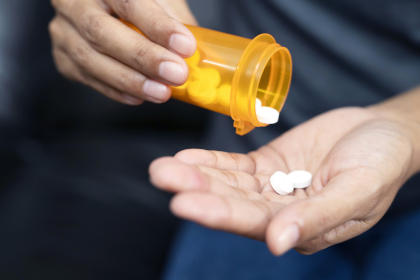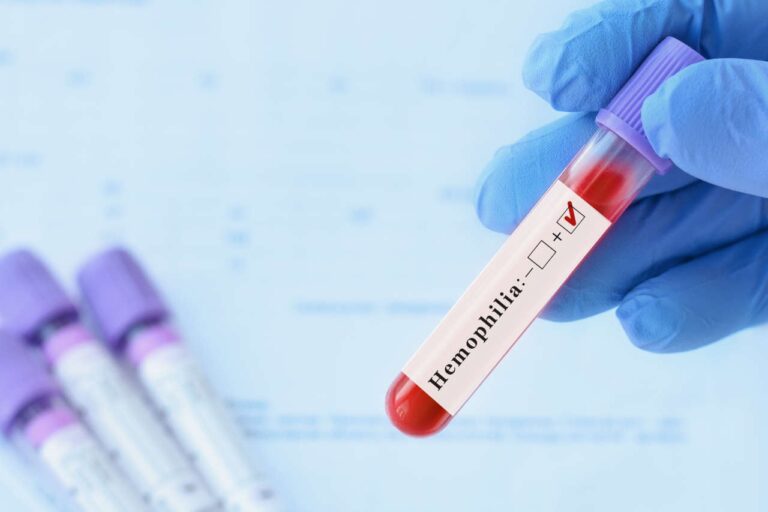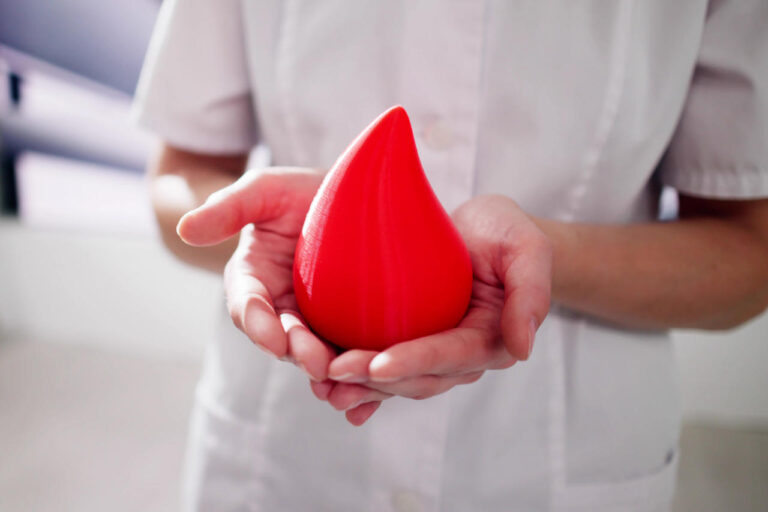
If you’ve been diagnosed with հեմոֆիլիա, you must be cautious about what medications to avoid. For instance, aspirin, while safe for some people, could be dangerous for you.
Get Financial Assistance | Copay Assistance
Hemophilia is a bleeding disorder in which blood does not clot properly due to a deficiency of some blood clotting proteins (factor VIII or factor IX). People with this condition can bleed excessively, even from minor injuries. Therefore, those with hemophilia should be aware of things that can worsen their condition.
In this article, we have compiled a list of medications that are potentially harmful to hemophilic patients and described how each medication could affect their condition.
Medications that Hemophilic Patients MUST Avoid
The following are some of the medications that you must avoid if you have hemophilia A or B:
Aspirin
Aspirin is a drug that is usually prescribed to ease pain. People with moderate to severe hemophilia should not take aspirin or aspirin-containing medications (such as Alka-Seltzer or Excedrin), as these drugs can interfere with the process of blood clotting by affecting platelet function, which results in prolonged bleeding time.
Moreover, aspirin can also increase the risk of bleeding in your stomach or digestive tract. Therefore, instead of aspirin, hemophilia patients can use acetaminophen (Tylenol) for pain, fever, minor injuries, and headaches.
Non-Steroidal Anti-Inflammatory Drugs (NSAIDs)
Non-steroidal anti-inflammatory drugs (NSAIDs) are prescribed to reduce inflammation and pain in the body. The signs of inflammation include heat, pain, swelling, and redness in a particular part of the body.
Hemophilia patients should avoid taking NSAIDs to reduce redness and swelling. NSAIDs such as ibuprofen (Advil, Motrin), naproxen (Aleve), and indomethacin can affect the functions of platelets and interfere with blood clotting. Instead of NSAIDS, acetaminophen should be used to reduce fever or pain.
Blood Thinner (Anticoagulants) Medications

Blood thinners or anticoagulants are used to prevent the blood from clotting. Since blood does not clot properly in hemophilia, taking blood thinning medications can put patients at significant risk of excessive and prolonged bleeding.
Some of the anticoagulants to avoid are as follows:
- Heparin
- Warfarin (Coumadin)
- Clopidogrel (Plavix)
- Prasugrel (Effient)
- Ticagrelor (Brilinta)
- Rivaroxaban (Xarelto)
- Apixaban (Eliquis)
- Dabigatran (Pradaxa)
Antidepressants
Antidepressants such as fluoxetine, paroxetine, and sertraline have mild-inhibiting effects on platelets, which may increase the bleeding tendency in some patients with hemophilia.
Some Antibiotics
Antibiotics treat infections caused by bacteria or viruses. Some antibiotics, particularly those in the cephalosporin and sulfa drug classes, can interfere with blood clotting and should be used cautiously in individuals with hemophilia.
These antibiotics include ceftriaxone, cephalexin, and sulfamethoxazole-trimethoprim (Bactrim). If you have an infection, always consult your healthcare provider about what antibiotic you should take.
Herbal Supplements
In some cases, when people with hemophilia use herbal supplements to relieve their pain or reduce inflammation, they can experience bleeding episodes. Though herbal drugs are natural and seem harmless, they have been reported to be associated with bleeding due to their anticoagulant properties.
Some of the herbal supplements that you should not take or must consult your healthcare provider before taking include:
- Ginkgo biloba
- Garlic in large amounts
- Ginger
- Ginseng
- Feverfew
- Saw Palmetto
Խոսեք մասնագետի հետ Copay օգնության մասին
Եզրակացություն
Though there is no cure for hemophilia, healthcare providers typically prescribe certain medications and treatments to patients that can help them stop bleeding so they can engage in ordinary activities. Some commonly prescribed medications, such as aspirin, NSAIDs, antidepressants, antibiotics, and herbal drugs, can put patients at risk of uncontrolled, excessive bleeding if taken unknowingly or without a doctor’s prescription. Hence, patients must be aware of which medications to avoid for hemophilia.
Ստացեք ֆինանսական օգնություն
Հղումներ՝
- Hemophilia – Diagnosis and treatment – Mayo Clinic. (2023, August 29). https://www.mayoclinic.org/diseases-conditions/hemophilia/diagnosis-treatment/drc-20373333#:~:text=Drugs%20that%20can%20make%20bleeding,Avoid%20blood%2Dthinning%20medications.
- Pearl. (2019, January 16). Precautions in hemophilia | Hemophilia. Hemophilia |. https://www.hemophilia.ca/precautions-in-hemophilia/
- Types of medicine > Taking medicine > Staying healthy > HOG Handbook > Hemophilia of Georgia. https://www.hog.org/handbook/article/5/42/types-of-medicine
- https://www.fda.gov/consumers/consumer-updates/warning-aspirin-containing-antacid-medicines-can-cause-bleeding
- World Federation of Hemophilia Guidelines for the Management of Hemophilia, 3rd edition
- https://www.ncbi.nlm.nih.gov/pmc/articles/PMC8566746/













